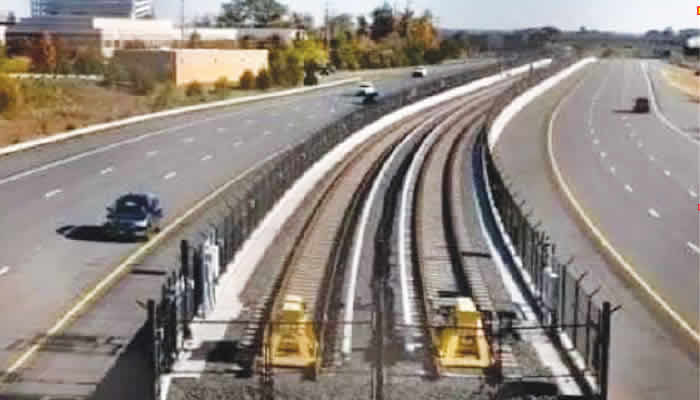The Lagos-Calabar Coastal Highway, a monumental infrastructural undertaking, has been officially launched in Cross River State, marking a pivotal step towards enhanced connectivity and economic prosperity for Nigeria’s South-South and South-East regions. This ambitious project, championed by President Bola Tinubu, promises to reshape the nation’s coastal landscape, fostering economic growth, creating employment opportunities, and facilitating cultural integration across the region. Represented by Governor Bassey Otu of Cross River State at the inauguration ceremony, President Tinubu emphasized the transformative potential of the highway, envisioning it as a catalyst for progress and development. The highway’s strategic significance lies in its ability to connect major economic hubs, unlock agricultural potential, and facilitate seamless movement of goods and people, ushering in a new era of prosperity for the region.
Governor Otu, speaking at the flag-off ceremony, hailed the Lagos-Calabar Coastal Highway as a game-changer for Cross River State, solidifying its position as a crucial hub for agriculture and multimodal transportation. The highway’s construction, coupled with the recent establishment of the Special Agro-Industrial Processing Zone in the state, is anticipated to significantly boost agricultural production and trade. It will provide efficient evacuation routes for agricultural produce, ensuring easier access to both domestic and international markets, thus driving economic growth and improving the livelihoods of farmers and communities along the route. Governor Otu called upon the people of Cross River State to leverage the economic opportunities presented by the highway, particularly in the small and medium enterprise sector, pledging the state government’s support in creating an enabling environment for entrepreneurship and business development.
The Minister of Works, David Umahi, reinforced the Federal Government’s commitment to the timely completion of the project, aligning it with President Tinubu’s Renewed Hope Agenda. Umahi underscored the highway’s multifaceted benefits, portraying it not merely as a transportation artery but as a catalyst for economic growth, sustainable development, and improved infrastructure connectivity. The highway’s strategic design is aimed at optimizing transportation efficiency, reducing congestion on existing routes, and strengthening the overall national infrastructure network. He emphasized the project’s meticulous planning and execution, defending the project’s cost-effectiveness and value for money. By serving as a vital evacuation corridor, the highway will enhance the region’s logistics and trade capabilities, bolstering economic activities and improving the quality of life for local communities.
Responding to concerns regarding the project’s cost and execution, Minister Umahi welcomed open dialogue and scrutiny, taking personal responsibility for the project’s planning and implementation. He assured the public of the government’s commitment to transparency and accountability, emphasizing the project’s adherence to stringent quality standards and specifications. Umahi’s robust defense of the project underscores the government’s confidence in its viability and its potential to deliver substantial benefits to the region and the nation as a whole. The minister’s assertive stance reinforces the government’s determination to complete the project efficiently and effectively, ensuring maximum value for the investment.
Olayinka Onafuye, the Federal Controller of Works in Cross River State, commended President Tinubu’s visionary leadership in initiating the Lagos-Calabar Coastal Highway, recognizing its potential to transform the region’s infrastructure landscape. Onafuye pledged rigorous oversight and supervision throughout the project’s implementation, ensuring strict adherence to quality standards and specifications. This commitment to meticulous project management reflects the government’s dedication to delivering a high-quality infrastructure asset that will serve the needs of the region for generations to come. Onafuye’s assurance of stringent quality control underscores the importance placed on building a durable and sustainable highway that can withstand the rigors of time and traffic.
The Lagos-Calabar Coastal Highway stands as a testament to the Federal Government’s commitment to infrastructural development as a driver of economic growth and regional integration. This ambitious project, poised to revolutionize transportation and connectivity in the South-South and South-East regions, embodies the government’s vision for a more prosperous and interconnected Nigeria. The highway’s construction is expected to generate numerous economic benefits, including increased trade, improved access to markets, job creation, and enhanced regional integration. By connecting major economic hubs and facilitating the efficient movement of goods and people, the Lagos-Calabar Coastal Highway is set to unlock the vast economic potential of the region, paving the way for sustainable development and a brighter future for all Nigerians.














